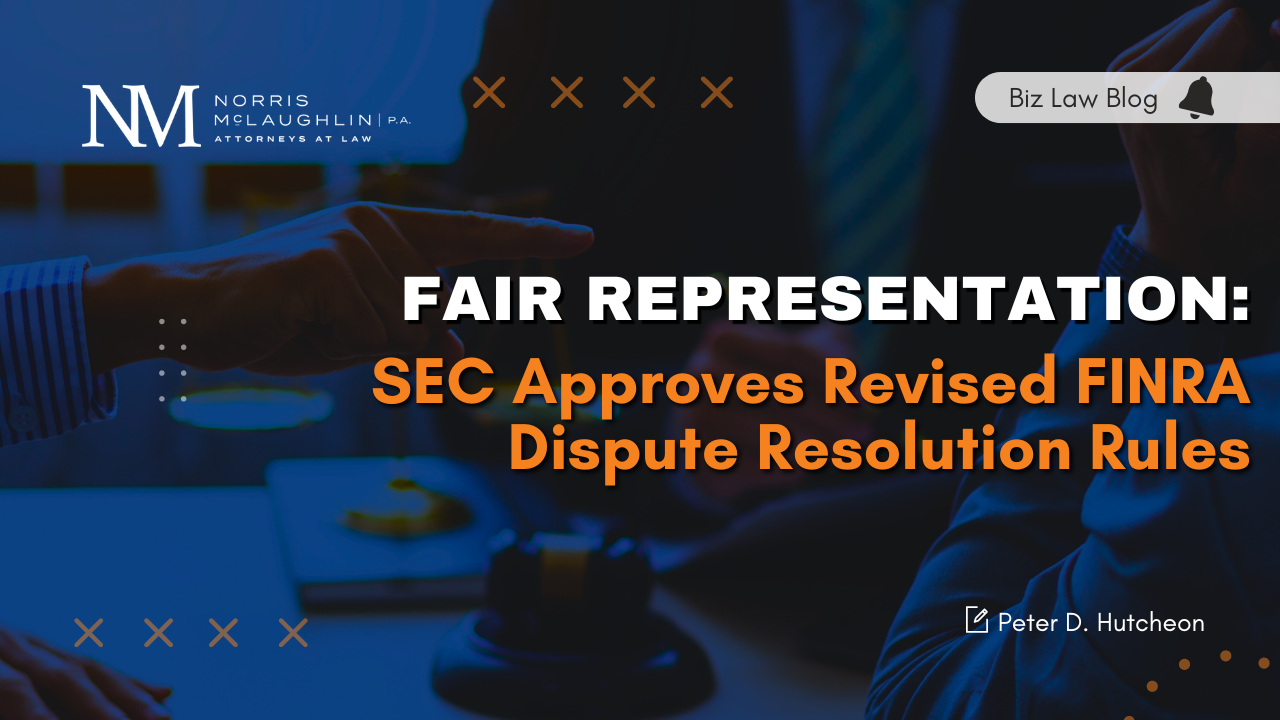Uniform Independence: SEC Sanctions Accountants and Lawyers

On Friday, Dec. 10, 2021, the U.S. Securities and Exchange Commission ("SEC") issued four releases reporting orders against individuals "Instituting Public Administrative and Cease-And-Desist Proceedings" and "Imposing Remedial Sanctions." The four individuals are the Vice President of Cintas Corporate Taxation and a CPA; and three professionals from Ernst & Young, LLP ("EY"), a partner and CPA, the Cintas Engagement Partner and attorney, and a Senior Manager, then Principal, also an attorney. The violation of SEC rules involved the independence of EY. Cintas is a public company whose shares are listed on NASDAQ. It provides uniforms and other materials and services to other businesses. Relevant SEC law and regulations require that as a public company, its annual financial statements must be audited by an independent auditor, and an independent auditor must conduct any review of its quarterly financial statements.
Independence
There are very specific SEC rules concerning independence, one of which provides that an auditor is not independent if compensated on a contingent basis. In addition, audit firms must specifically request permission from a public company's Audit Committee of its Board of Directors to be able to provide non-audit services. This requirement reflected the frequent use of a company's audit firm to provide ancillary services, many times services involving federal and state tax matters.
After the collapse of Enron and the passage of the Sarbanes-Oxley Act in 2002, those independence rules were reviewed and tightened. Included in the post-Sarbanes-Oxley regulatory regime is a requirement that any request to provide non-audit services must disclose in detail the fee structure for those services. In its engagement letters to the Cintas Audit Committee proposing the performing of tax services (including obtaining credits and incentives from the relevant taxing authorities) EY undertook to bill on a time and material basis.
Nonetheless, the Vice President of Cintas Corporate Taxation "negotiated arrangements by which EY billed Cintas based upon a percentage of the relevant tax credit or incentive secured." These arrangements were in effect from July 2009 through August 2018. According to the SEC Release concerning the EY engagement partner, EY staff raised concerns at least by 2016 that the billing arrangements with Cintas for tax services were, in fact, a contingent fee agreement, but no corrective steps were taken.
SEC Sanctions
The billings by EY for 2009 to 2018 were indeed found by the SEC to be a contingent fee arrangement, so that Cintas did not have the required audited financial reports for the affected years (even though there was no allegation of fraud or misstatement of those reports), because of the absence of independent audit certifications and reviews. Presumably, the company would have to file restated financials for the periods involved, certified by an independent audit firm – not EY- to correct the situation.
The Cintas Vice President, age 61, retired in 2020. The SEC, in their settlement with him, imposed a one-year suspension from appearing before the Commission and a $30,000 civil penalty. The three EY professionals were all suspended from appearing before the Commission: one for one year; the other two for two years. The person suspended for one year paid a civil penalty of $10,000; each of the other two was required to pay a $20,000 penalty. The EY CPA partner, age 55, was "involuntarily separated" from EY in March 2019. One may wonder whether the two EY tax attorneys had much of a future with the firm after the sanctions were imposed.
The question a reasonable person might ask is: WHY did they do this? One might guess that the additional payments received from Cintas positively affected their compensation (from the company in the VP's case and from EY for the other three). But to risk careers and reputations in the face of a clear SEC rule seems unduly risky for a quartet of lawyers and accountants. Perhaps there is another explanation. Might it be that these four (and perhaps others) relied on the "perceived wisdom" that the contingent fee prohibition does not fully apply to performing tax-related service?
SEC Regulations
In "Auditor Independence and Tax Practitioners" by Tom Purcell and David Lifson in the June 1, 2001, Journal of Accountancy, the authors note that the original SEC proposed regulations in response to the Enron and other scandals would have banned an audit firm from also providing tax services. As a result of major criticism from the American Institute of Certified Public Accountants ("AICPA"), that provision was withdrawn and replaced with cautionary statements about the possibility of so-called "value added" billing, which might NOT be a violative contingent fee, depending on the specific arrangement. Subsequent inquiry from the AICPA to the newly created (under the Sarbanes-Oxley Act) Public Company Accounting Oversight Board resulted in a May 21, 2004 letter from the SEC Office of the Chief Accountant that forcefully and carefully specified:
…the [SEC] staff will look closely to determine whether a fee labeled as "value added" is in fact a contingent fee, such as where there are side letters or other evidence that ties the fee to the success of the services rendered.
Cintas was billed and paid, from 2009 to 2018, 10% of federal tax benefits and 15% for state and local tax benefits received from the EY efforts. It is hard to see how those payments did not run afoul of the contingent fee prohibition. These four SEC enforcement actions should serve as a sharp reminder that the independence of auditors is a primary concern for the SEC and for the investing public.
If you have any questions about this post or any other related securities or general business law matters, please feel free to contact me at pdhutcheon@norris-law.com.




